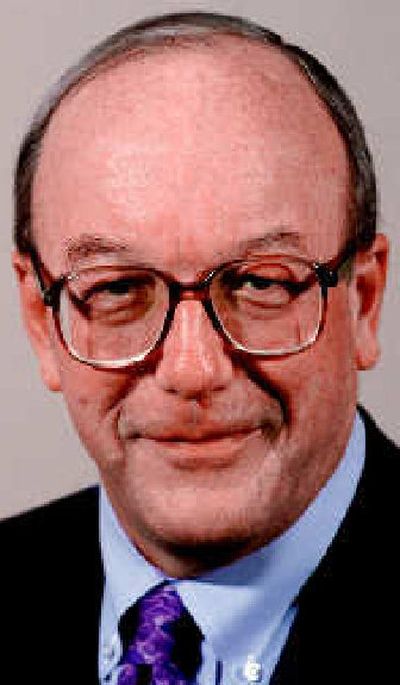Former Boeing, HP exec Platt dies

Lewis “Lew” Platt, a director and former chairman of Boeing Co. who also served as chief executive at Hewlett-Packard Co. in the 1990s, has died, Boeing said Friday. He was 64.
Platt died Thursday in California, where he lived, Boeing spokesman John Dern said. He provided no further details.
Platt became non-executive chairman of the aerospace and defense company’s board after former CEO Phil Condit’s departure in December 2003 and served until W. James McNerney was appointed chairman and CEO in June. Platt remained on the Chicago-based company’s board, where he had served since 1999.
Platt ran Hewlett-Packard from 1992 to 1999, overseeing the split of the world’s second-largest computer company into two separate firms, HP and Agilent Technologies Inc. He decided to step down as part of HP’s restructuring and was replaced by Carly Fiorina, who was ousted earlier this year.
Platt was thrust into a visible role at Boeing as the company worked to overcome ethical lapses. He became chairman when Condit abruptly resigned amid defense contracting scandals that ultimately sent two executives to jail.
His efforts to restore order at the company were dealt a setback in March, when former CEO Harry Stonecipher — appointed to help repair Boeing’s image — resigned after admitting an affair with a female Boeing executive.
“Lew shepherded Boeing with strength, grace, dignity and integrity through a period when the company most needed his steady hand,” McNerney said in a statement.
Platt worked at HP for 33 years, starting as an entry level employee in the company’s medical products group in 1966. Shortly after his appointment as CEO in 1992, he succeeded David Packard as HP’s chairman, serving until he left the company in 1999.
PalmSource shares soar on offer
San Francisco Shares of PalmSource Inc., maker of the Palm operating system for handheld computers, surged 78 percent on Friday on news that the Japanese software company Access Co. had agreed to pay $324 million for it.
The news had some analysts wondering how PalmSource, which has failed to excite investors since Palm Inc. spun it off two years ago, could draw such an offer.
Access was offering $18.50 for each share of PalmSource common stock, an 83 percent premium to the stock’s Thursday closing price of $10.09 on the Nasdaq Stock Market. PalmSource share price rose $7.89 to close at $17.98 on Friday.
PalmSource has seen its market share erode since its separation from Palm Inc., a darling of the tech investors in the high-flying 1990s. Microsoft Corp. and Symbian have in recent months gained in handheld operating systems.
Offer boosted to $754 million for ShopKo
Green Bay, Wis. Private equity company Goldner Hawn Johnson & Morrison Inc. increased its bid for retailer ShopKo Stores Inc. by 4 percent to about $754 million after an influential shareholder adviser and minority shareholders called the earlier price too cheap, ShopKo said Friday.
Goldner also said it would give up its right to match any superior proposal and agreed to halve its termination fee to $13.5 million if the deal was rejected, ShopKo said in a statement.
“We have agreed to this increase in purchase price, the reduction of our termination fee and the elimination of our right to match another offer to address the concerns of ShopKo’s shareholders and other interested observers,” Michael Sweeney, Goldner Hawn’s managing director, said in a statement.
He said the new price was Goldner Hawn’s final offer.
Fed to mark Greenspan departure
Washington The Federal Reserve decided to shorten a key monetary policymaking meeting in late January in what amounts to an acknowledgment by the secretive institution that Chairman Alan Greenspan is leaving then.
The Fed said in a terse announcement Friday that the discussions of the Fed’s interest-rate setting panel would take place on Jan. 31 only, rather than during a two-day time frame of Jan. 31-Feb. 1. The idea would be that the meeting would not overlap the departure of Greenspan the arrival of his successor.
“This change avoids a meeting that spans the terms of two chairmen,” the central bank said, confirming that Jan. 31 likely would be Greenspan’s last day.
The three names mentioned most often as possible Greenspan successors are Ben Bernanke, who took over as chairman of the president’s Council of Economic Advisers this year after having served as a Fed board member; Columbia University professor Glenn Hubbard, Bush’s first CEA chairman, and Harvard economics professor Martin Feldstein, who was CEA chairman during the Reagan administration.
The brief announcement represented the most direct confirmation yet by the Fed that Greenspan, who has served 18 years at the head of the central bank, will be leaving at the end of January. There was little doubt of that as Greenspan attended a recent Fed meeting in Wyoming.